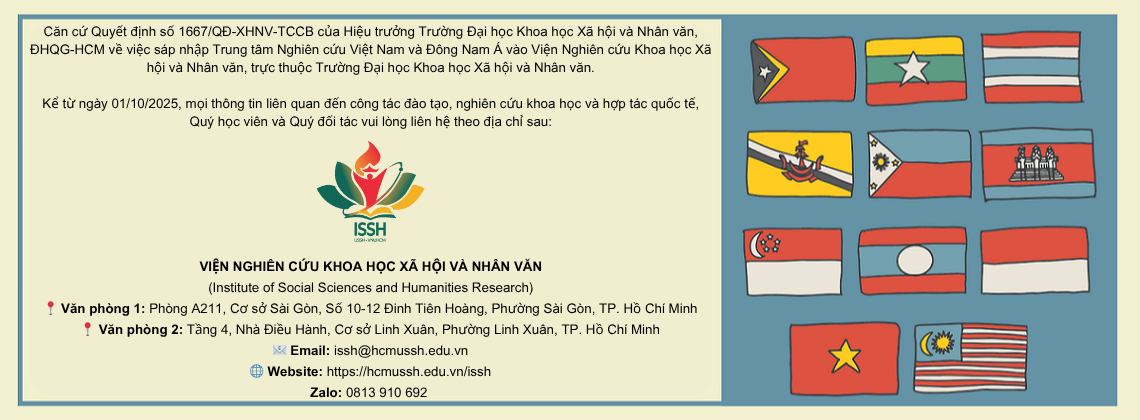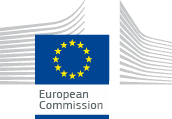DR. SOPHIE BOISEAU DU ROCHER: VIETNAM NEEDS TO ESTABLISH A STRONG CONNECTION WITH ASEAN
, 31/05/2015 23:05Seminar “Vietnam – ASEAN: A Practical Strategy for a Stronger Community” was held at University of Social Sciences and Humanities (USSH) - Vietnam National University, HCMC on 25/05/2015. With the presentation of Dr. Sophie Boisseau du Rocher– Asian Center, Paris School of International Affairs, the event drew more than 240 attendees.
Dr. Sophie Boisseau du Rocher– Asian Center, Paris school of International Affairs (France).
The seminar also welcomed Ms. Nguyen Thi Diep - a delegate of the EU-funded Public Diplomacy and Outreach Project in Vietnam, Dr. Luu Duc Tien - Deputy Director of the Office of Professional and Higher Education, HCMC Department of Education and Training, staff and employees of Department of Education and Training and of the Career and Education Association, together with other teachers, staff and students from the Department of Oriental Studies, Department of French Linguistics and Literature and Department of Korean Studies, HCMC USSH.
China wrongly presumed that it possessed the East Sea
Dr. Sophie Boisseau du Rocher expressed his worries about the East Sea issue in the seminar that drew the participants’ attention: “What drives China’s action still remains unknown to the world. China pretends that the East Sea is its own pond. And China does not want to talk about this issue with any other country.”

Regarding the solution to this East Sea problem, Dr. Sophie emphasized: Vietnam as well as ASEAN does not want an arm race but just peace and stability via negotiations to develop the whole area. We need to work towards the solution that China may call for a meeting at the negotiating table. Vietnam and ASEAN do not want negative results and are attempting to minimize the escalating tensions over the East Sea issue.
In his speech at the seminar, Dr. Sophie pressed the important role of ASEAN in raising the shared voice among regional countries. “Obviously, having one shared voice among members, ASEAN would certainly be stronger and this would pose a challenge to China. The Philippines and Vietnam need to have closer cooperation to increase the strength of ASEAN. The two countries need to act promptly and take measures so that China may think twice and stop. One more essential issue is to wake up other Asian countries to create the whole strength for the region. Member countries, particularly Singapore and the Philippines, have paid close attention to this issue, which is the strong urge for other countries to follow.

China’s “silkworm eats mulberry” strategy
Dr. Sophie shared, “China is trying to cause a division among the countries in the region, slowly but firmly. This is its so-called “silkworm eats mulberry” strategy. You can easily see the steps China has taken recently such as: the deployment of oil rig 981 in the exclusive economic zone of Vietnam’s waters, illegal island construction, etc. Of late, China has illegally banned Vietnamese fishermen from fishing in the Gulf of Tonkin.”
In answering some questions from the attendees, Dr. Sophie pointed out some measures to deal with Chinese policies: “ASEAN is struggling to deal with China’s “silkworm eats mulberry” strategy, and so is the world. Vietnam needs to extend its relationship to outside partners and learn more from other countries. The further you reach, the more easily you realize that China is a super strong nation. Therefore, Vietnam needs an international cooperation”.
“Probably, you might feel like an outsider to the world. Yet, if you go out and access to the world, cooperation might gradually be easier. Particularly, the young Vietnamese need to reach out more and more. Vietnam needs international support. Do not worry that integration would mean the loss of cultural identity because Vietnam has so strong an identity when integrating with ASEAN. Promoting multiracial strength is an advantage. More care and support should be delivered to ethnic minority groups. That ethnic system is connected not only within a nation but also within the ASEAN community”, highlighted Dr. Sophie.
Dr. Luu Duc Tien - Deputy Director of the Office of Professional and Higher Education, HCMC Department of Education and Training.
Integration helps Vietnam to strongly develop
The seminar drew attention of not only scholars but also the youth: The advantages and disadvantages of the labor market when Vietnam entered the ASEAN economic community was a concern raised by Tran Thi Kim Dung, a senior student of Department of Southeast Asian Studies, HCMC USSH.
To discuss more about this, Dr. Sophie said that integration was one of the measures that helped Vietnam strongly develop in many aspects in order to deal with China’s unreasonable acts. This was a considerable significance. The Vietnamese labor market had a clear distinction between unskilled workers and those with professional expertise. This would be an intense competition with other regional countries and the world in terms of labor sources when integrating. This raised an urge to minimize the gap between the two types of workers and improve the quality of both.
ASEAN encouraged Vietnam to join the non-invasion rule. Vietnam had certain benefits when joining ASEAN such as the strategic meetings, cooperated military exercises with Asian countries, full participation into ASEAN. Vietnam was a strong partner in ASEAN and would work with this group to build up a firmer ASEAN in order to negotiate with China.
Vietnam needs to further the mutual cooperation with other countries in terms of education. There should be multi-national educational projects. The prime ministers of Education and Training of those countries should work closely together to agree on the collaboration, which would partly change Vietnam’s education. Vietnam also needs to identify the internal problems that the country is facing. The youth, the future owner of this country, should be more active in seeking opportunities for themselves. They may apply for scholarship offered by the state or other in other regional countries.
Dr. Tran Dinh Lam, Director of the Center for Vietnamese and Southeast Asian Studies, representative of USSH, VNU – HCMC, also expressed his thanks to Dr. Sophie Boisseau du Rocher and Ms Nguyen Thi Bich Diep, representative of the EU delegation in Vietnam. He said a few words to the youth to prepare for growth. They have to well equip themselves with knowledge, understanding and innovations to improve human resources for Vietnam. Meanwhile, he emphasized that students need to exchange their knowledge with Chinese students. No one can protect the country but for the intellect and power of its own people. We need to have our own voice in which students play an important part to prevent China’s misbehavior.
The event was a very meaningful seminar on integration and many heated issues about Vietnam and ASEAN’s politics. Promoting the cooperation between Vietnam, Southeast Asia and the European Union would greatly stabilize peace and development of Vietnam, the region and the world.
Vietnamese article by Nguyen Hieu
(Translated by Nguyen Khoa Nam)














